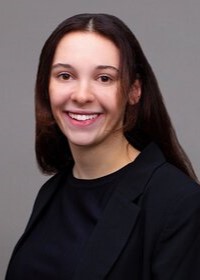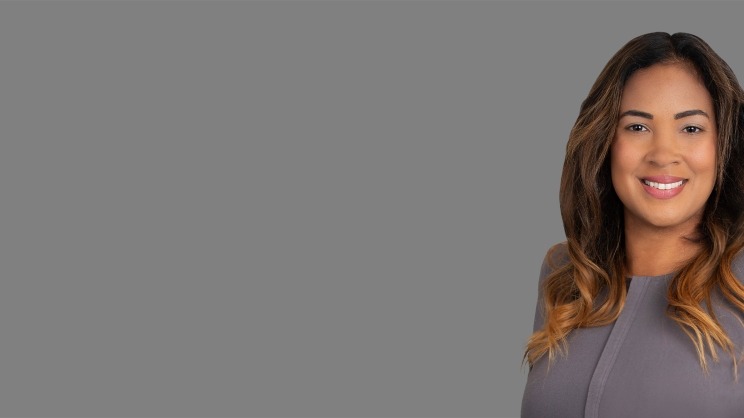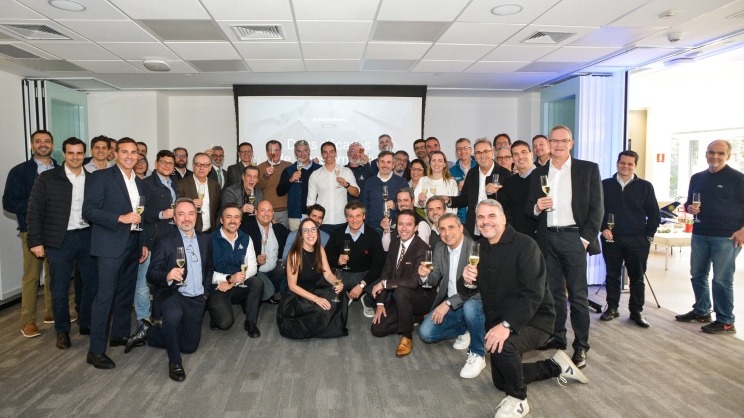Campus Spotlight: Kristen Pucci
The Importance of Internships and Taking Initiative in Early Career Development

Kristen Pucci is an analyst with Alvarez & Marsal’s (A&M) Private Equity Performance Improvement (PEPI) group in New York, New York. She earned a bachelor’s degree from Northeastern University.
In the following Q&A, Kristen highlights how her participation in Northeastern University’s entrepreneurship program honed her entrepreneurial skills, her decision to join A&M due to its investment in people and conducive learning environment and her involvement in A&M’s campus recruiting program. She reflects on challenges early in her career, time management strategies, qualities for success and networking tips.
What skills or experiences did you gain in college that have been valuable in your career thus far?
There is a lot that I could list, but one particularly valuable experience was participating in Northeastern University’s Semester in San Francisco program for entrepreneurship, where the professors were a mix of active venture capital partners, serial entrepreneurs and angel investors. I learned a lot from them about entrepreneurial skills and mindset that I have found valuable in my career thus far. Namely, I learned to tolerate ambiguity and the risk of error, make logical assumptions and problem-solve or generate an opinion despite working with unknowns. Additionally, the program gave me experience communicating an opinion with conviction, standing by my assumptions but staying open-minded to new information and understanding an audience enough to tailor my messaging effectively.
What led you to pursue your chosen field of study?
I wanted to choose a field of study that would equip me to contribute meaningfully to society—by understanding human behavior, economics/resource allocation and how new knowledge and innovation lead to real socioeconomic improvements for people. Although initially undecided—torn between studying political science, psychology or business—I opted to pursue the study of business administration with two concentrations in finance and entrepreneurship. I made this choice because I ultimately viewed (and still view) profit-turning businesses as the most capable vehicles for societal change, from powerful investment firms to early-stage startups. It was important to me to understand finance and entrepreneurship, how businesses make money and what they do with it and how founders turn innovative ideas into scalable, impactful companies.
The Connection Between a Company’s Core Values and Professional Development
Why did you choose to intern at A&M?
Firstly, it was made clear to me during the interview process that the firm’s interest was not limited to hiring an intern for a finite six-month period. Rather, my interviewers communicated that A&M truly acts on its core value of personal reward and invests in forming long-term relationships with people. This stood out to me because I aimed for my final internship during college to turn into a launchpad for my career post-grad. Secondly, I remember leaving my interviews thinking, “Wow, these people are really smart and interesting, and I want to work with them.” Since my goal was to end up in a role where I could learn as much as possible from people who genuinely wanted to teach me, I was psyched to have the opportunity to intern at A&M.
Why did you choose to join A&M full-time?
By the end of my internship, it was a ‘no-brainer’ to accept the return offer to join A&M full-time. My experience confirmed my expectations that A&M invests in its people and that those people have a lot of knowledge to share and genuinely enjoy working with and teaching each other. I couldn’t imagine a more optimal environment for an entry-level analyst looking to learn. Also appealing was the firm’s entrepreneurial culture and loose-hierarchical structure, which gives opportunities for entry-level staff to learn and contribute that do not exist in most places. For one example: I was sitting in meetings with a client’s C-suite leadership during my second week on the job. Additionally, throughout my internship, I was able to communicate my feedback directly to managing directors about building a successful intern program. Not only did they listen earnestly and apply changes, but they allowed me to present my experience on a PEPI practice team call. These are just a couple of a long list of examples. Ultimately, I could not wait to jump back in with A&M after finishing my senior year at school.
Overcoming Early Career Obstacles
Tell us about your involvement in the firm's campus recruiting and how it's shaped your perspective on talent acquisition and the next generation of professionals.
I have only been involved in recruiting Northeastern co-op students for the last year, but I have observed so far that putting in the effort to show interest during the recruiting process goes a long way for candidates (e.g., writing an optional cover letter, attending all information sessions and asking questions, requesting coffee chats). Relevant experience certainly matters, but it is not always true that the candidate with the most ‘impressive’ resume will receive the offer. Thus, people should not discount themselves for certain positions for fear that another applicant may have a higher grade point average (GPA) or a big-name internship on their resume. Taking initiative and communicating genuine interest in a role can push a well-qualified candidate to the top of the list.
How did you start your career, and what were some of the biggest challenges you faced early on?
I largely owe the start of my career to Northeastern University’s co-op program, which allowed me to compile over one year of work experience during a four-year track to graduation. After experiencing my first two co-op internships in tech startup strategy and then hedge fund risk management, I realized that my skills and interests most aligned with starting my post-grad career in a fast-paced, analytical but people-focused field such as consulting.
Once I completed my final co-op internship with A&M during my senior year at Northeastern University, I quickly signed on to start as a full-time analyst after graduation.
One of the biggest challenges early on, mostly as an intern but also starting full-time, was transitioning from academic-style thinking to adopting a more efficient deliverable-focused work style. I struggled early on with the temptation to spend too much time documenting my whole process (‘showing my work’) and obsessing over the tiniest details when working toward a deadline. I’ve since been working on balancing a healthy amount of attention to detail with the ability to work quickly in a time crunch.
Another challenge I faced early on was managing my time at work and in life, especially when chaos strikes in one or both areas. Once I started working full-time, all within one month, I found myself traveling for onboarding, working on two projects at once, spending hours on training modules, moving out of my college apartment, racing to find a new place to live, then moving into an unfurnished one-bedroom apartment. There can be a lot to juggle as a young person transitioning from college to full-time work. I’ve learned that full transparency and work communication are important for balancing priorities. For example, it’s okay to tell your manager that you need to take a day off a project so that you can move or that you might take a bit longer than planned to complete skills training due to competing project work.
How do you stay organized and manage your time effectively, especially when faced with competing priorities and deadlines?
Learning to master time management is still an ongoing process for me. Three sayings stand out that sum up my main strategies:
1. “Shoot the alligators closest to the boat.”
2. “If it takes two minutes, do it now.”
3. “Write it down…don’t just think it – ink it.”
Navigating the Transition from School to Work
What are the most important qualities for success in your field, and how do you cultivate those qualities in yourself?
I’d say two of the most important qualities (among others) are emotional intelligence/emotional quotient (EQ) and teachability. I try to cultivate emotional intelligence in engagements by understanding each stakeholder’s unique priorities, stressors, work style, personality, etc. Empathizing with each person’s point of view helps maximize the ability to communicate productively and serve someone’s needs. I also try to cultivate teachability by asking for my colleagues’ input on how they might think about a given task or problem. I listen to them with an open mind and stay willing to try others’ suggestions even if I have historically gone a different route.
How do you approach networking and building professional relationships, and what tips would you offer to others starting out?
My approach to networking is based on organic conversations and a genuine interest in getting to know people. I have learned that conversations typically run smoothly if I am curious about a person and get excited at the opportunity to learn more about what they do, why, what they like, what they don’t, any crazy stories they have, etc.
A tip I would offer to others who want to build a professional relationship with someone but don’t know how to start a conversation is to try to channel genuine curiosity in that person and remember that people usually love being asked about their interests and will happily talk to you about them.
What's your favorite hobby or activity outside of work, and how did you get into it?
Cooking! I like to eat healthy and firmly believe that healthy food can taste fantastic when prepared correctly, so my concoctions are usually based on that idea. Like many others, the onset of the pandemic accelerated my cooking at home—a combination of having more free time, eating out less frequently and being chronically online to self-teach new techniques and find recipe inspiration.
If you had to eat only one type of cuisine for the rest of your life, what would it be and why?
This question is nearly impossible, but I’d say Italian because I can’t imagine a world without pasta.
What are some fun facts about you?
- I take improv comedy classes in my free time and love watching stand-up.
- I am the oldest sibling to two younger brothers.
- I spent two months alone in Hawaii during the pandemic (and loved it).



